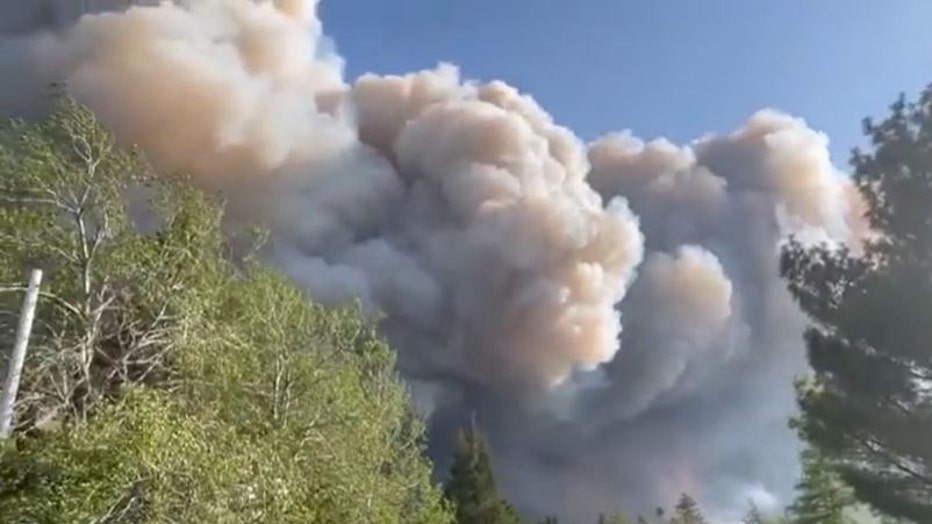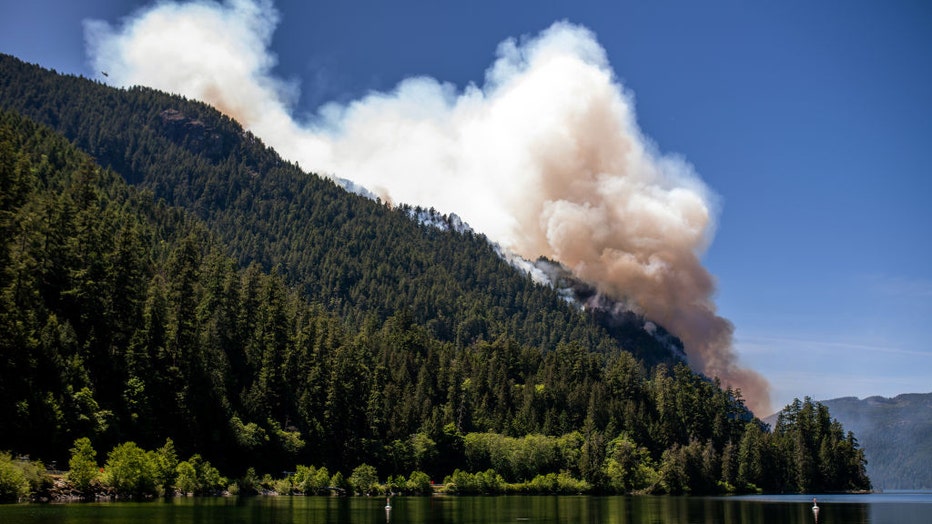Wildfires in Canada continue to create chaos for the East Coast
More than 400 wildfires continued to burn across Canada Thursday.
As firefighters try to get a handle on the situation, officials in Quebec say it could get worse before it gets better since no rain is expected until next week and temperatures are predicated to rise.
"We're not happy about the situation, though some fires are under control, some not. We have evacuated about 12,600 people all over Quebec, principally, and in the north of Quebec in Oujé-Bougoumou and Chibougamau. So we're looking at these fires every hour, every hour. And we are hoping to tell people, to tell Quebecers that they will be able to go back home, but in the short term, it won't be possible," said François Bonnardel, minister of public security of Quebec during a press conference Thursday.

An image showing smoke filling the air on May 30, 2023, above Nova Scotia, Canada, as wildfires continue to scorch the landscape. (@bigmacdaddy_eth via Storyful / FOX Weather)
RELATED: 'EH!PACALOPYSE NOW!' Americans blame Canada as haze from northern fires continues
The fires have been fueled by an unusually dry and warm spring, and although wildfires are common in Canada, this season could well become the worst on record.
"We have around 175 firefighters on the ground this morning. We have cl-215 and cl-415. We have ten of them who are flying and fighting these fires. The principal fire that we are concerned is the fire 334, that is about 15 kilometers from Chibougamau," said Bonnardel.
President Joe Biden has sent more than 600 firefighters and equipment to Canada he is now offering more support.
After speaking with Canadian Prime Minister Justin Trudeau, President Biden said he has "directed the National Interagency Fire Center to respond promptly to Canadian requests for additional firefighters and fire suppression assets, such as air tankers."

A swimmer in Cameron Lake in front of the Cameron Bluffs wildfire near Port Alberni, British Columbia, Canada, on Tuesday, June 6, 2023. (James MacDonald/Bloomberg via Getty Images)
New Jersey has already seen multiple wildfires erupt in recent weeks and weather experts say there's a greater chance of seeing above normal temperatures and really no strong signals for a lot of precipitation, which means drier conditions that can lead to wildfires.
"It doesn't look like there's a major change in the pattern as we go through June. It looks like we'll continue to see [this] kind of dry air and a little bit of unseasonably warm kind of conditions in central and even kind of spreading into eastern Canada so, you know, those kinds of conditions are going to lead to those fuels that are susceptible to these wildfires, said Nelson Vaz, warning coordination meteorologist at the National Weather Service in New York.

